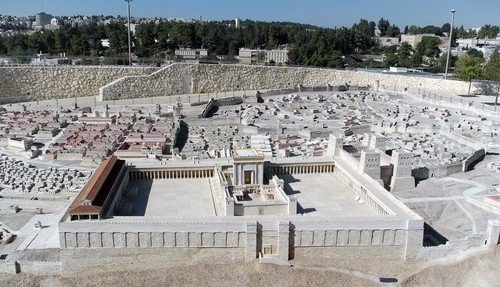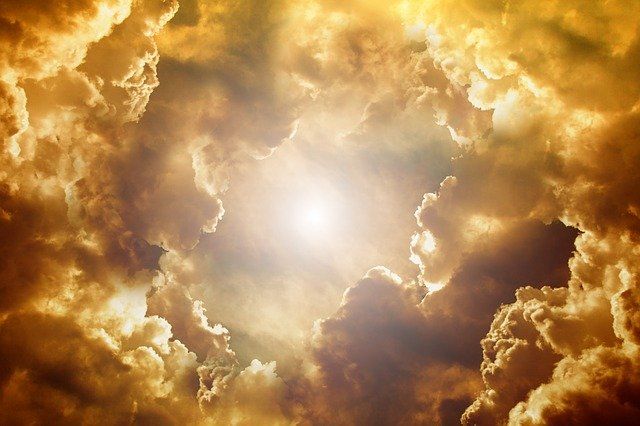What will heaven be like? We have already seen, in Revelation 21: 1-21, something of what we called ‘the geography of glory’ – what heaven will look like when this world us wound up at ‘the end of the age’ (Matthew 13:49; 24:3; 28:20).
But now the focus changes to the experience of glory – what it will be like to live in that new heaven and new earth as the saved, sanctified and glorified people of God.
Vision
We must remember that this is a vision and not a video. Jonathan Edwards comments: ‘There is nothing upon earth that will suffice to represent to us the glory of heaven’.
The glimpses of glory that God gave in the past — for example, to Moses on Sinai and to the disciples at Jesus’ transfiguration — all point to something far greater, namely, the glory of heaven.
The visions of heaven and the holy city represent realities which will not only be seen and felt, but which will transcend all the foretastes given us in Scripture. Heaven will be a feast for the senses and the soul, and excite our wonder for all eternity.
Our passage reveals something of what it means to be ‘partakers of the inheritance of the saints in light’ (Colossians 1:12). It unfolds six particular qualities of that experience.
Unhindered worship
There is ‘no temple’ in heaven (21:22). This must have been astounding to both Jewish and Gentile Christians, who associated public worship with buildings dedicated to that purpose.
Had not God visibly manifested his presence as the Shekinah — the Glory-cloud — in the tabernacle and the temple (Exodus 40:44-45; 1 Kings 8:11)? To have no dedicated location for worship seems to imply no worship at all!
Without a temple, how shall we ‘enter into his gates with thanksgiving, and into his courts with praise’ (Psalm 100:4)?’

The answer is that ‘the Lord God Almighty and the Lamb are its temple’. The Jerusalem temple was destroyed in A.D. 70 ending animal sacrifices for ever. Even before that, they had been rendered obsolete by the sacrificial death of Jesus, ‘the Lamb of God’.
The tabernacle and temple, the priesthood and offerings, were only symbols of Christ and the gospel of salvation through his shed blood (Luke 22:20; cf. Exodus 22:2-3). It is therefore impossible for there to be a temple in heaven (nor should anyone rebuild the temple here on earth).
Christ is the final temple, the great high priest, and the once-for-all sufficient sacrifice for sin.
The triune God is the ever-present centre of life in heaven. In a sense, ‘the worship never stops’ (J. MacArthur, The Glory of Heaven, p.110). There is pure worship in the assembly of the just (Hebrews 12:23), but in heaven we will enjoy unhindered worship with a perfection that eludes us here.
In glory, ‘we shall always be with the Lord’ (1 Thessalonians 4:17) and ‘dwell in the house of the Lord all the days of [our] life, to behold the beauty of the Lord and to inquire in his temple’ (Psalm 27:4; 23:6).
Ever-dawning light
There is ‘no need of the sun’ for light in heaven (21:23)! This too runs counter to all our experience. There ‘the moon will be disgraced and the sun ashamed; for the Lord of Hosts will reign on Mount Zion … gloriously’ (Isaiah 24:23). Heaven will be flooded with ever-dawning light, for ‘the glory of God illuminated it, and the Lamb is its light’.
Uncreated light will manifest the glory of God’s being and presence. We shall see God (Matthew 5:8), behold Jesus’ glory (John 17:24) and ‘be like him, for we shall see him as he is’ (1 John 3:2).

Light and vision are also used in Scripture, figuratively, of spiritual insight and discernment. Paul says: ‘God who commanded light to shine out of darkness … has shone in our hearts to give the light of the knowledge of the glory of God in the face of Jesus Christ’ (2 Corinthians 4:6).
That ‘the eyes of the blind shall be opened’ (Isaiah 35:5) foresees not only the conversion of the lost, but the perfect vision, physical and spiritual, of the people of God in heaven.
Unclouded love
It is no surprise that ‘the nations of those who are saved shall walk in [heaven’s] light’(21:24). The Greek for ‘nations’ is ethne, from which we get the English ‘ethnic’.
In this world, ethnicity often means discrimination, strife, oppression, and even extermination!
There will still be ‘ethnicity’ in heaven, but all will share the same love. All one in Christ Jesus, they will love one another with the love with which Christ has loved them (Galatians 2: 20,28; John 13:34; 15:12).
The reason is ‘the kings of the earth bring their glory and honour into it’; that is, they will acknowledge Christ as King of kings: ‘The kingdoms of this world have become the kingdom of our Lord and of his Christ, and he shall reign for ever and ever!’ (Revelation 11:15; 17:14).
Perfect peace
Unclouded mutual love can only result in peaceful society (21:25-26). The fact that ‘the gates shall not be shut at all by day’ tells us that there is no threat. There are no locks on heaven’s doors!
Why? Because ‘there is no night there’. This is literally true, for God’s glory is never switched off.

Who goes to bed if he is neither tired nor ill? It is only our present frailty in a fallen world that makes sleep necessary. Just as the God who watches over his people neither slumbers nor sleeps, so the saints in heaven will be eternally and tirelessly active.
Spiritually, ‘no night’ implies ‘no sin’. There will be no night in our experience of heaven, either in our relationships with others or in our own hearts and minds.
‘The sin which we have as believers’, notes Maurice Roberts, ‘will be eradicated from our natures at every conceivable level’ (The Thought of God, p.207).
Comprehensive godliness
There will be nothing in heaven that ‘defiles, or causes an abomination or a lie’ (21:27). ‘Unpardoned sinners will never be admitted … merely formal Christians will knock on the door … [and] find it shut. Those who imagined they would be safe … without the wedding garment of Christ’s righteousness will be found out and solemnly excluded’ (Roberts, The Thought of God, p.207).
Only those will be admitted whose names are written in ‘The Lamb’s book of life’ and ‘have washed their robes and made them white in the blood of the Lamb’ (Revelation 7:14) — those who have believed in Jesus as their Saviour, whose atoning death pays the penalty of sin, and who are made righteous in him with a righteousness not their own (Romans 10:3; Philippians 3:9).
The Shorter Catechism (37) asks: ‘What benefits do believers receive from Christ at death?’; and replies: ‘The souls of believers are at their death made perfect in holiness (Hebrews 12:23) … [and] do immediately pass into glory (2 Corinthians 5:1,6,8; Philippians 1:23; Luke 23:43)’.
Unbounded happiness
Scripture reveals heaven to be a place of unbounded happiness and exhilarating joy (22:1-5). It is the reality of which worldly happiness is the temporary and illusory substitute.

Firstly, all true human needs are met in heaven (22:1-2). The New Jerusalem has a river, streets and trees.
The river flows with ‘the water of life’ and the trees are of the ‘tree of life’ bearing fruit and carrying leaves ‘for the healing of the nations’. On a physical level, heaven affords every comfort and provision to delight both body and soul.
But the symbolism goes deeper. The ‘water of life’ is the Holy Spirit (John 7:37-39; cf. 4:13-14). The ‘tree of life’ speaks of Eden and Adam’s sin, and then of restoration in Christ.
Secondly, all causes of distress are eliminated in heaven (22:3). There will be ‘no more curse’, because God and Christ rule in glory and we shall serve him without hindrance.
Finally, all of God’s people will glory in Christ in heaven (22:4-5). Life is lived in the presence of the Lord in happy fellowship with him.
Believers are reconciled to him — ‘they shall see his face’.
Believers belong to him — ‘His name shall be on their foreheads’.
Believers are taught by him — ‘the Lord God gives them light’.
Believers rule with him — ‘they shall reign for ever and ever’.
For ever
The gospel is for ever. Jesus saves for ever. New life in Christ is forever. Heaven is forever.
But hell is also for ever for those who steadfastly reject the Saviour. Hell will be the endless night of God-denying souls.
The vision of heaven call you to Christ. Christ calls you to himself, to repent of sin and flee to him in faith for forgiveness of sin and everlasting life — that you might become ‘a chosen generation, a royal priesthood, a holy nation, his own special people, that you may proclaim the praises of him who called you out of darkness into his marvellous light’ (1 Peter 2:9-10).






